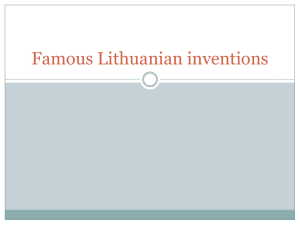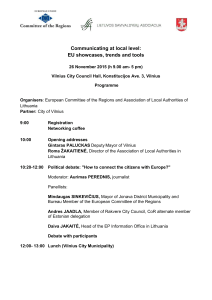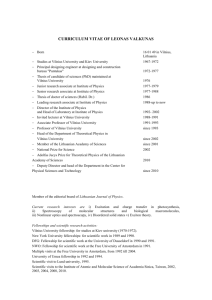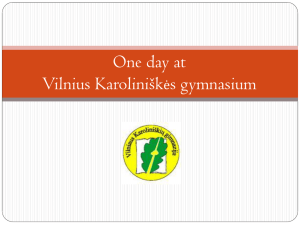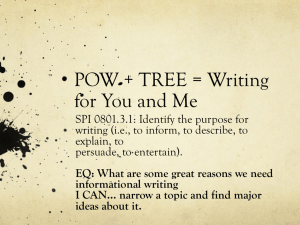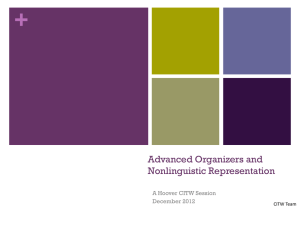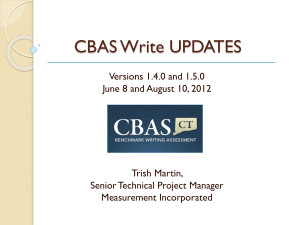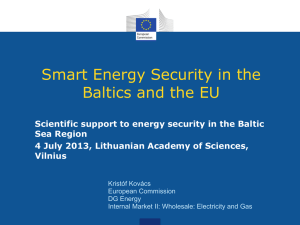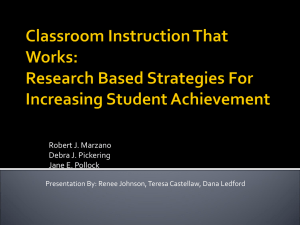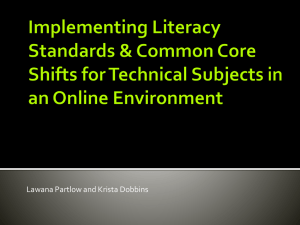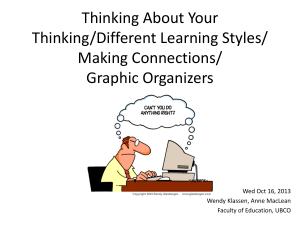Presentation Vilnius
advertisement
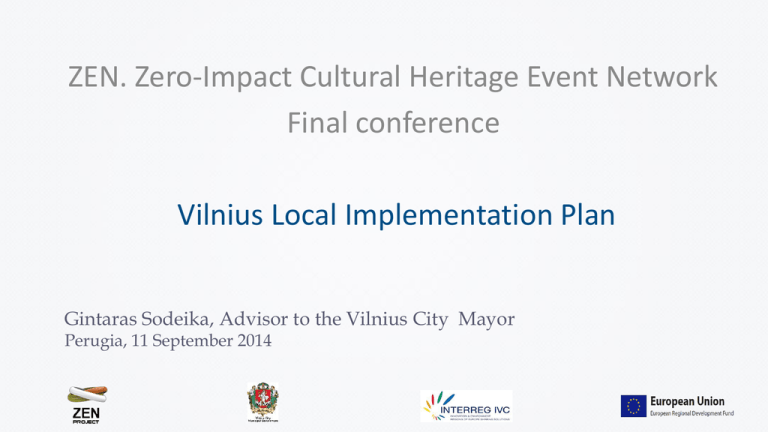
ZEN. Zero-Impact Cultural Heritage Event Network Final conference Vilnius Local Implementation Plan Gintaras Sodeika, Advisor to the Vilnius City Mayor Perugia, 11 September 2014 01 One of the main goals of Vilnius City Municipal Government Administration – to assure the growth of sustainable development in the city by disseminating information, educating the society and applying best practice examples. Impact of events on Vilnius city Factors influencing sustainable event organization: • EU and national strategic goals and priorities (growing attention to sustainable development) • Increasing domestic and international tourism • Concentration of SMEs in Vilnius • Economic revitalization and growing interest in culture • Absence of a national document that regulates the process of event organization Guidelines for event organizers and participants – an important part of Local Implementation Plan, adding value to Vilnius city. Guidelines for event organizers Three-stage process of event organization Planning: Identify potential impacts and issues Define targets and develop action plan Implementation: Deliver actions and record progress Communicate achievements Measuring success: Document outcomes Feedback Guidelines have been prepared for each stage separately Stage 1 Strategic planning Prepare implementation plan Re-think marketing strategy Foster social cohesion Select right service providers Planning Team building Identify right partners and sponsors Train volunteers Assign responsibilities Coordinate process Transport Offer ticket discounts for travelling with public transport Think about car and bike parking Warn participants about the traffic Maximize use of shared transport Venue of the event Organize noisy events in nonresidential areas Consider needs of local residents Assure mobility for the disabled Consult with experts (regarding cultural heritage) Catering provision Encourage and support local businesses Provide options to cater for diverse dietary, ethnic and cultural needs Offer local, seasonal, nonfrozen products Use of resources Use eco light bulbs Use ecological, recyclable materials Use water dispensing machines Print in black and white Waste management Avoid plastic bags, minimize packaging Encourage participants to sort waste Use bio-toilets and portable washbasins Use ecological cleaning materials Stage 2 During the event in action: • • • • Inform the society about sustainable event principles Assure that team members are well-prepared to do their job Monitor venue of the event Take notes, write down comments about the progress of the event Stage 3 – measuring success • Provide sustainability facts and figures in the final report • Organize the discussion with the team about the event • Communicate results to the society, integrate sustainability messaging into press releases • Use recyclable paper to prepare the report • Use special labels, display signage detailing the measures undertaken Guidelines for the participants 01 Participants have an opportunity not only to change their daily habits – they are recipients of the service and, therefore, can make a strong impact on the way event is organized. Guidelines for the participants Before event • Read about the concept of sustainable development • Find out information about parking and alternative ways of travelling • Read event programme in advance (in this case you will not need printed booklets) • Choose that event, which complies with sustainable event principles (express your civil position by participating in a particular event) During event • Avoid using disposable glass • Choose products sold by local producers • Ask for tap water when dining, fill empty bottles with tap water instead of throwing them away • If possible, use public or shared transport • In hotel choose an option to reuse towels the second day • Avoid purchasing goods with a lot of packaging, do not use plastic bags • Make sure light is off when you are leaving • Preserve cultural heritage • Be tolerant to different societal groups After event • Provide the feedback • Evaluate the event by answering such questions as: Were you informed about responsible behavior / sustainable development? Were you told about where to buy ecological food? Was a safe car / bike parking organized? Sustainable events: Local implementation plan (1) 1. To disseminate the information about sustainable event guidelines (target group – event organizers) 1.1. To organize informative events, presenting results of ZEN Project to event organizers. 1.2. To disseminate information about sustainable event guidelines via internet. 1.3. To motivate event organizers to apply sustainable event guidelines by communicating benefits of such events. 1.4. To organize educational seminars that are directly related to strengthening capabilities of event organizers. Sustainable events: Local implementation plan (2) 2. To educate the society about sustainable participation in the events. 2.1. To organize informative events, educating the society about sustainable development and guidelines for the participants. 2.2. To disseminate information via Ministries of the Republic of Lithuania, strengthening inter-institutional and inter-sectoral cooperation. 2.3. To develop an intensive communication campaign on the internet by involving cultural centres, NGOs, civil and youth organisations. 2.4. To integrate messages about sustainable development into the programme of the events. Sustainable events: Local implementation plan (3) 3. To implement an intensive training programme for event organizers. 3.1. To identify local sustainable development experts, who could prepare the training programme. 3.2. To organize training for the event organizers. 3.3. To assign a responsible person who would consult event organizers on sustainable development issues. 3.4. To do case studies of large events in Vilnius. Sustainable events: Local implementation plan (4) 4. To initiate changes in cultural policy and legislative framework. 4.1. To define and approve procedures regulating process of event organization. 4.2. To include the concept of sustainable development into the documents that regulate process of event organization. 4.3. To form a working group of event organizers in order to improve sustainable event guidelines. 4.4. To encourage special labelling of initiatives that comply with sustainable development principles. 4.5. To introduce a requirement to comply with sustainable development principles for all events that are funded by Vilnius city municipality or Lithuanian Council of Culture. 4.6. To make decisions that would help to improve the regulation of event organization. 4.7. To organize a discussion of Vilnius county municipalities in order to uniform legal acts that regulate event organization. 4.8. To create a database of responsible organizations / companies. Sustainable events: Local implementation plan (5) 5. To engage in event monitoring and evaluation. 5.1. To form the committee for the evaluation of the events. 5.2. To implement sustainable event development programme. 5.3. To organize annual awards for the most sutainable (green) initiatives and events. 5.4. To cooperate with the association of responsible businesses (LAVA) and Lithuanian network of responsible businesses and providers (LARTA). Unawareness does not excuse from responsibility – these guidelines will be used to introduce sustainable development principles to the society, to educate them about potential negative impact of the events and to inspire them to create a nicer, safer and a more sustainable future. Thank you for your attention

